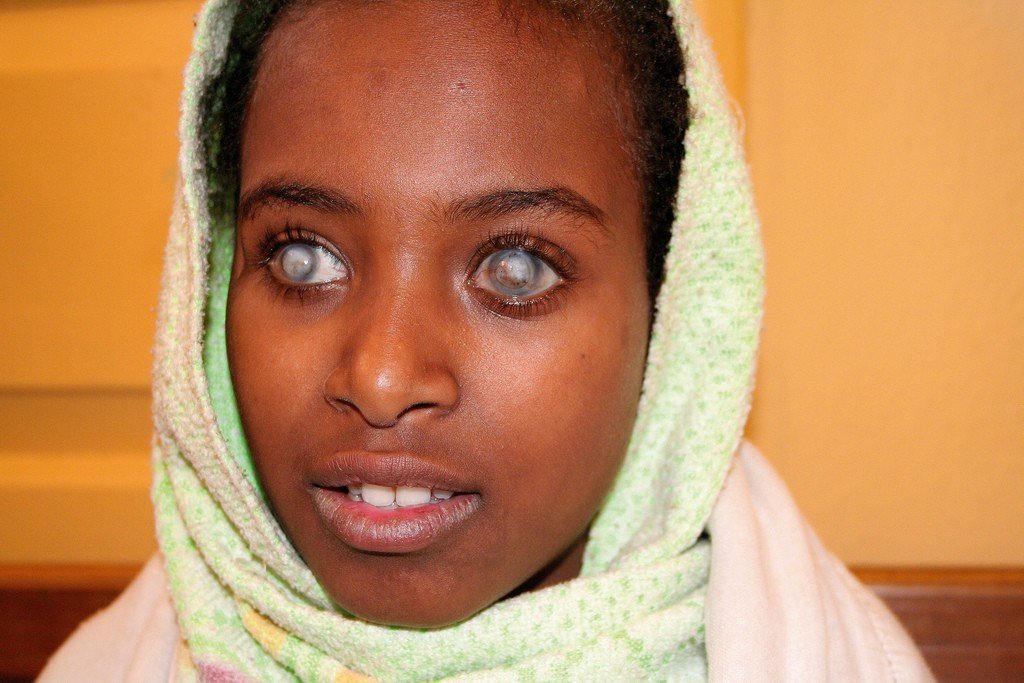Blindness is a lack of vision, the inability to see anything. The word blindness, is commonly used as a relative term to signify visual impairment, or low vision; meaning that even with eyeglasses, contact lenses, medicine or surgery, a person does not see well.
'blindness' denotes the inability of a person to distinguish darkness from bright light in either eye. In fact a person blind from birth will tell you he sees nothing, when people ask if what he sees is color black.
Which sense do you value the most?
CAUSES OF BLINDNESS
completely blind means seeing nothing, but partially blind people might experience the following symptoms:
- cloudy vision
- an inability to see shapes
- seeing only shadows
- poor night vision
- tunnel vision
DIFFERENT TYPES OF BLINDNESS
color blindness
Partial blindness
complete blindness
CAUSES OF BLINDNESS
The following diseases and conditions can cause blindness:
- Ocular complications of diabetes
- Macular degeneration
- Glaucoma
- Traumatic injuries.
- Retinitis pigmentosa
- Tumors that affect your retina or optic nerve
- Trachoma
- Onchocerciasis (river blindness)
- Leprosy
CAUSES OF INFANT BLINDNESS
- infections, such as pinkeye
- blocked tear ducts
- cataracts
- strabismus, or crossed eyes
- amblyopia, or a lazy eye
- ptosis, or a droopy eyelid
- congenital glaucoma
- retinopathy of prematurity, which occurs in premature babies when the blood vessels that supply their retina aren’t fully developed
- visual inattention, or delayed development.
RIISK OF BLINDNESS
- living in a third-world nation
- Poor prenatal care
- Premature birth
- Advancing age
- Poor nutrition
- Failing to wear safety glasses when indicated
- Poor hygiene
- Smoking
- Family history of blindness
WHO TREATS BLINDNESS
Ophthalmologists are the specialists who have the knowledge and tools to diagnose the cause of blindness and to provide treatment, if possible.
DIAGNOSIS OF BLINDNESS
Blindness is diagnosed by testing each eye individually and by measuring the visual acuity and the visual field, or peripheral vision. People may have blindness in one eye (unilateral blindness) or in both eyes (bilateral blindness).
DIAGNOSING BLINDNESS IN INFANTS
A pediatrician will screen a baby for eye problems shortly after birth. At 6 months of age, a child should have an eye doctor or pediatrician check your child again for visual acuity, focus, and eye alignment. The doctor will look at the baby’s eye structures and see whether they can follow a light or colorful object with their eyes.
TREATING BLINDNESS
Treatment of visual impairment or blindness depends on the cause. In some cases of vision impairment is corrected of treated with the help of the followings.
- eyeglasses
- contact lenses
- surgery
- medication
HOW TO SURVIVE WITH COMPLETE BLINDNESS
Complete blindness requires approaching life in a new way and learning new skills. For example, you may need to learn how to:
- read Braille
- use a guide dog
- memorize the keypad on your phone
- organize your home so you can find things easily
- fold money in distinct ways to distinguish bill amounts
PREVENTING BLINDNESS
Blindness is preventable through a combination of education and access to good medical care. Most traumatic causes of blindness can be prevented through eye protection.
REFERENCES
Blindness
Mayo clinic
Recommended eye clinic
THANK YOU FOR READING, YOU CAN KINDLY UPVOTE ME FOLLOW ME AND RESTEEM MY POST @gbenga
LIVE A HEALTHY LIFE
from 



